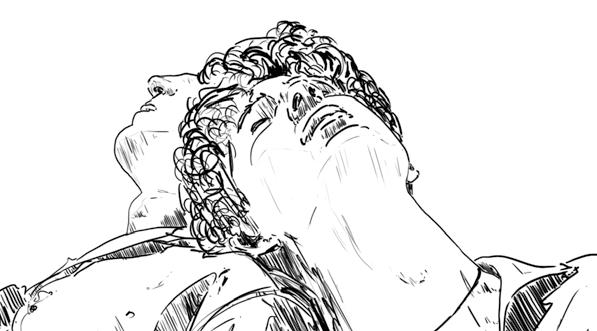
3 minute read
The Personal is Political
The
is Political
Advertisement
For centuries, theatre has been used as an outlet to explore a multitude of social issues, ranging from the problems surrounding the 20th Century class system, explored in J.B Priestley’s ‘An Inspector Calls’, to themes of suicide discussed in Shakespeare’s ‘Hamlet’. Shakespeare is an example of a highly influential playwright who has stretched and broken many social ideals, such as the restriction of gender roles. This can be seen in ‘Macbeth’, as Lady Macbeth is portrayed as highly dominating and authoritative towards her husband, at a time when women would have been expected to act submissively and with complacency in 17th Century society. In our studies of Drama GCSE we study Bertolt Brecht, a 20th Century practitioner who was highly significant in emphasising the unity between politics and theatre. He debated political issues through ‘Epic Theatre’, such as the topic of morality during wartime in his play, ‘Mother Courage’.
For the Year 10 devising portion of our GCSE, our given stimulus is the book ‘Everyday Sexism’ written by feminist Laura Bates. This has given us a platform to push the boundaries surrounding the controversial topic of feminism, much like these practitioners and playwrights have done for centuries. Everyday Sexism by ‘Laura Bates’ is a feminist book that catalogues instances of sexism experienced on a day-to-day basis by women globally. These accounts of oppression range from women being ‘catcalled’, to brutal stories of Female Genital Mutilation. The book consists of twelve chapters, each focused on a different aspect of sexism, such as ‘Women in Politics’ and ‘Young Women in Learning’. As a class, we have used our Drama lessons to explore these varying themes and how they can be portrayed using different theatrical skills, such as our use of the Brechtian technique - Spass. From German, ‘Spass’ literally translates to ‘fun’. Brecht wanted to make his audience laugh as he realised that while we are laughing, we are also thinking. This is why, for the topic of sexism, Spass is a highly effective technique in making the audience consider the deeper underlying messages behind a performance. The use of comedy can be used to highlight how ridiculous the standard of female ‘perfection’, that is perpetuated by the media on a daily basis, really is. This is one example of how we use theatre, specifically through Brechtian techniques, to relieve tension and explore societal boundaries. Theatre is ideal for stretching boundaries as it allows us to take an alternative approach in expressing political and humanitarian crises.
It has the ability to make the audience reflect, both emotionally and mentally, on the message being conveyed. An example of a mentally provoking technique is that of a non-linear plot. This technique breaks apart a storyline, and reveals it pieceby-piece in a more disjointed order; much like a puzzle piece for the audience. The muddling of a storyline works to make the audience question exactly why certain events have happened, rather than to simply create an emotional attachment to characters. This is useful in exploring boundaries as it prevents any political themes and ideas being distorted or obscured by an overly emotional narrative. In contrast, an emotive performance can be created
through characterisation.
12
Characterisation can be utilised to develop emotional attachments and responses from the audience through the use of consistent voice, body language and facial expression. However, some forms of characterisation, such as multirole performances, can be used to detach the audience from the character and force them to consider events from a broader perspective. Instead of thinking solely about a character’s very specific situation, the audience are able to recognise the issue as a whole. These differing uses of characterisation are both useful in exploring boundaries as they offer the audience a wider insight into the topic being discussed.
The ‘personal is political’ as the saying goes, and our studies of Theatre and Drama have allowed us to really unpick the boundary between character and political message. Audiences always leave a theatre with a message or moral idea of some kind, and ultimately it is the writers, directors and actors that have the power to decide what this message will be.






